
With the recent conclusion of the Kita Food Festival, arguably one of the best events of the entire festival, included a stellar line-up of chefs and industry leaders from Kuala Lumpur, Manila, Singapore and Bali shed some light on the various elements of the food and beverage industry, from discussing business stories and tactics to philosophy and hospitality. Here is our summary breakdown of all the talks by the speakers.
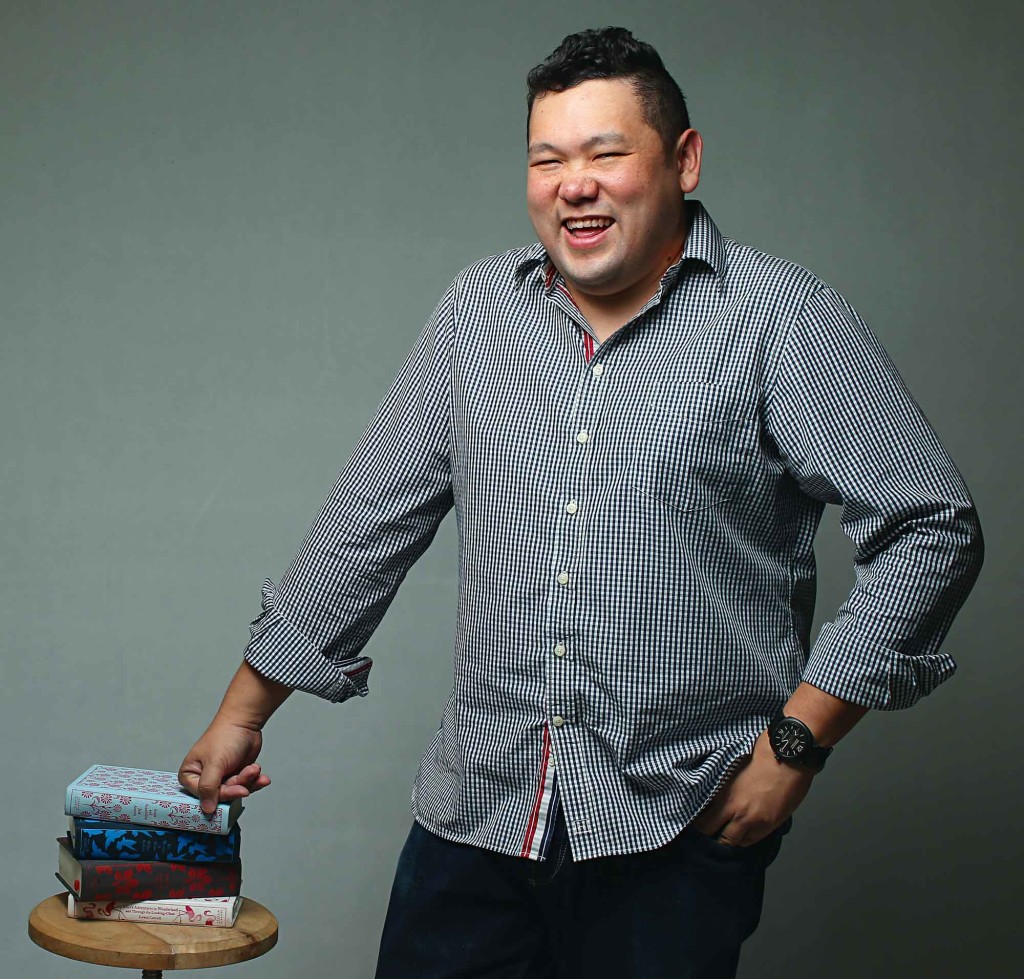
Reality Bites: When Dreams Collide With Reality
Benjamin Yong
The Big Group
Ben talked about how he started his business from Delicious days, to its selling off and moving on to projects including his restaurants and supermarkets. He expressed was that you shouldn’t be too emotionally attached to your businesses and be more flexible.
“Consumers don’t know what they want, but they know what they like.”
— Benjamin Yong
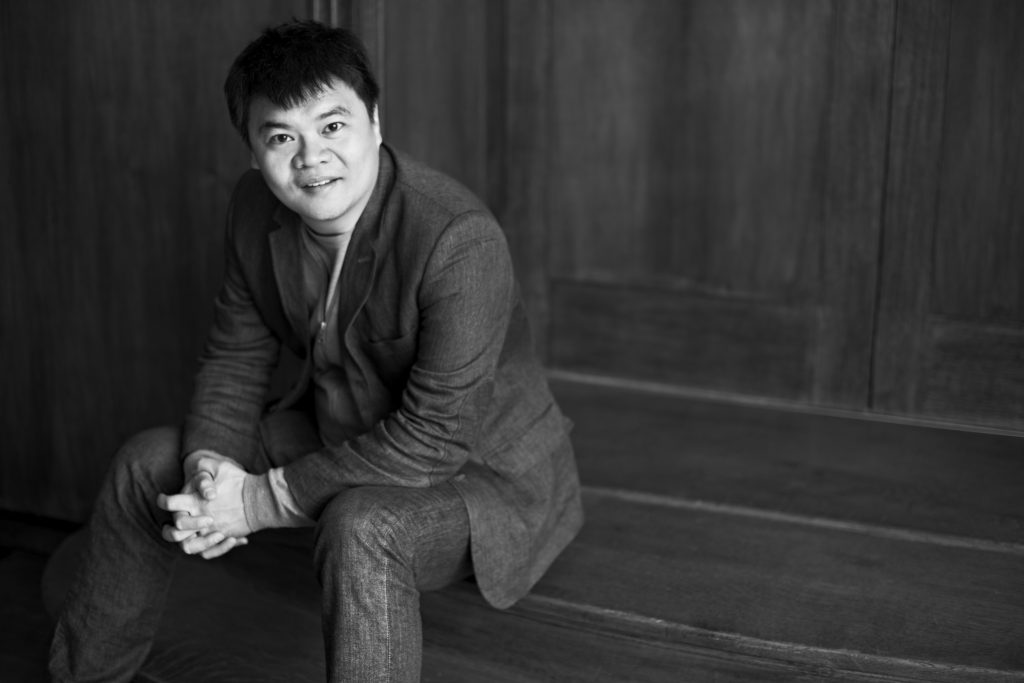
Building Unlisted Collection: Identifying Talent And Everything Else Needed To Run A Restaurant
Loh Lik Peng
Unlisted Collection
Lik Peng gave a very candid talk about what to look for in good talent, and that businesses are run by talents, that the restaurants might have the name, but it’s really the talent that make them. You should also pick someone with a business mind, who understands purchasing, HR, food costing. Having only an artistic vision won’t last, you must not forget the nuts and bolts of the business, that you should build infrastructure around the talent. A business should kick off after 6 to 9 months, if you’re fighting too hard to get traction, then it’s time to let it go.
“With talents, when you give them shares, they don’t value it, but if they earn it, they value it more.”
— Loh Lik Peng

Business Tactics: How Can We Build A More Gender-Balanced F&B Industry?
Tamara Chavez (Canchita Singapore)
Johanne Siy (Lolla Singpore)
Loh Lik Peng (Unlisted Collection)
The panel began with Johanna Siy talking about how there needs to be a systemic change, and that everyone should embrace femininity, but that you should always hire the best person for the job, not based on gender.
“Talk to people who are involved in legislation to effect greater change in the workplace.”
— Johanne Siy
Tamara Chavez opined that hirings should be based on gender, as she was taught by her grandmother to always be strong and that when working with women, listen to them to make them comfortable, that way they can work together, but also importantly, to not make it awkward or treat them differently because of their gender.
“It is a reality that it is physically harder for women in kitchen, but they also tend to be more attentive to details.”
— Tamara Chavez
Loh Lik Peng, the only male on the panel said that we should make the workplace workable for women to do both, work on their careers and to also be able to have children.

Making The Transition From Chef To Restaurateur And Businessman
Rishi Naleendra
Cloudstreet Singapore
Rishi talked about how he transitioned from a chef to a restauranteur and businessman. He said that you should be practical when it comes to running a business and the importance of knowing what P&L and depreciation is. He also said Michelin will change your career and to also write down your concepts and accept that they will change.
“Let ideas be stupid. Creativity comes with necessity, and cash flow is king.”
— Rishi Naleendra

A Toyo Culture Of Hospitality: The Art Of The Relationship Between The Kitchen And Front Of House
Jordy Navarra
Toyo Eatery Manila
Jordy spoken on how his kitchen works and drew inspiration from sport teams in working together and that team building is important for starting the day before prep. Front of house should engage guests when the kitchen needs more time and that everyone should haven hybrid roles, by getting everyone to try different roles, they understand better. They also recap about the evening before and who’s coming in tonight, involving everyone in details so everyone understand each other’s roles.
“You should give front of house freedom to express their own ideas of hospitality.”
— Jordy Navarra
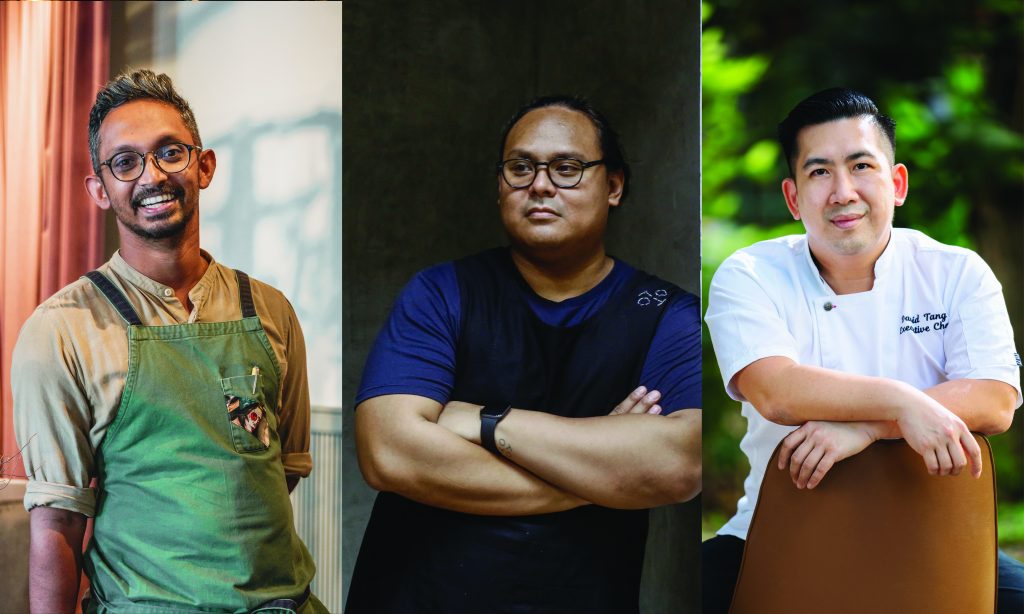
How To Counter No Shows, Peacefully, And Without Losing Revenue. How Do Paid Or Hosted Reviews Impact The Dining Industry?
Rishi Naleendra (Cloudstreet Singapore)
Jordy Navarra (Toyo Eatery Manila)
David Tang (Rosemead Singapore)
This panel began with Rishi Naleendra talking about multiple bookings problems and that it boils down to having manners as human beings, about how he let his guest spend the deposit on alcohol when they missed their booking. He says they don’t entertain influencers as a policy but said it’s easy to say that when you have a successful business. Overall, he says that social media is relevant if used the right way.
“People should be responsible for what they post.”
— Rishi Naleendra
Jordy Navarra says that they take a deposit and his wife, who is also the General Manger, takes the reservations and they tend to not charge for late shows. But because they have built a good relationship with their patrons, as long as relationships are not abused.
“It really depends on what you’re willing to put up with.”
— Jordy Navarra
David Tang says at Rosemead they make space for walk ins, and having a deposit encourages better habits. He also sees the value of influencers, who might not be your target audience at all, but doesn’t encourage it.
“Word of mouth is the clientele you want.”
— David Tang
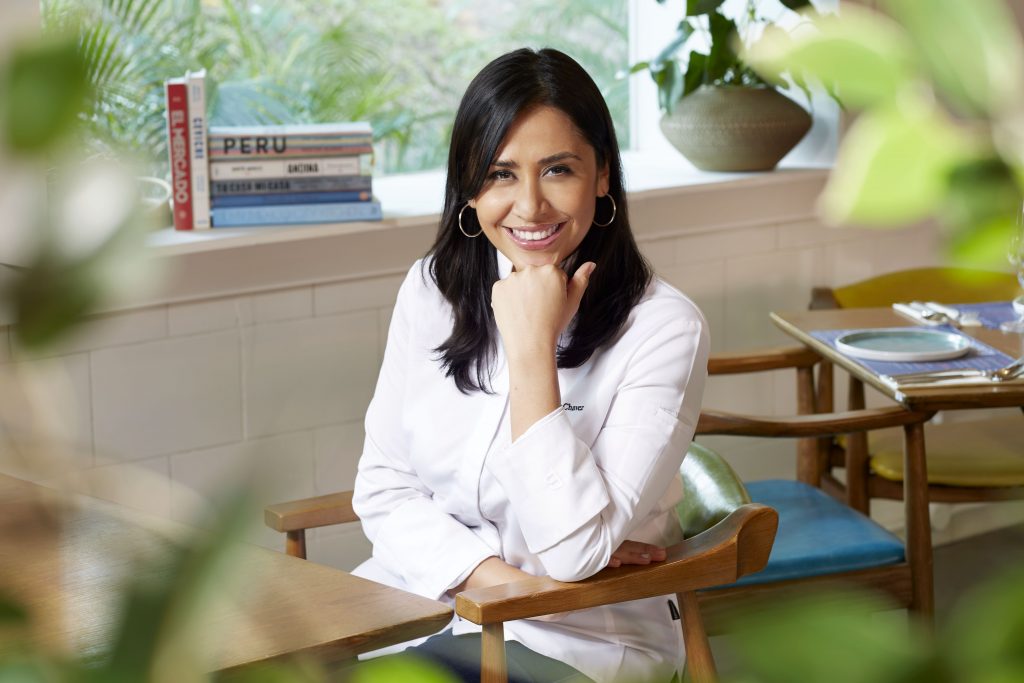
FOOD FEEL-OSOPHY
Does Authenticity Validate Our Cultural / Culinary Experience?
Tamara Chavez
Canchita Singapore
Tamara spoke about why and what authenticity is and whether authenticity is tradition, and whether that is actually good or bad, or fusion of good and bad. She thinks people should observe locality, taste everything and have an open mind. When made, does it translate.That you must make your own version, that’s the evolution of food. We need to think how we express ourselves on a plate.
“Authenticity is what you give to the kitchen. What you do every day.”
— Tamara Chavez
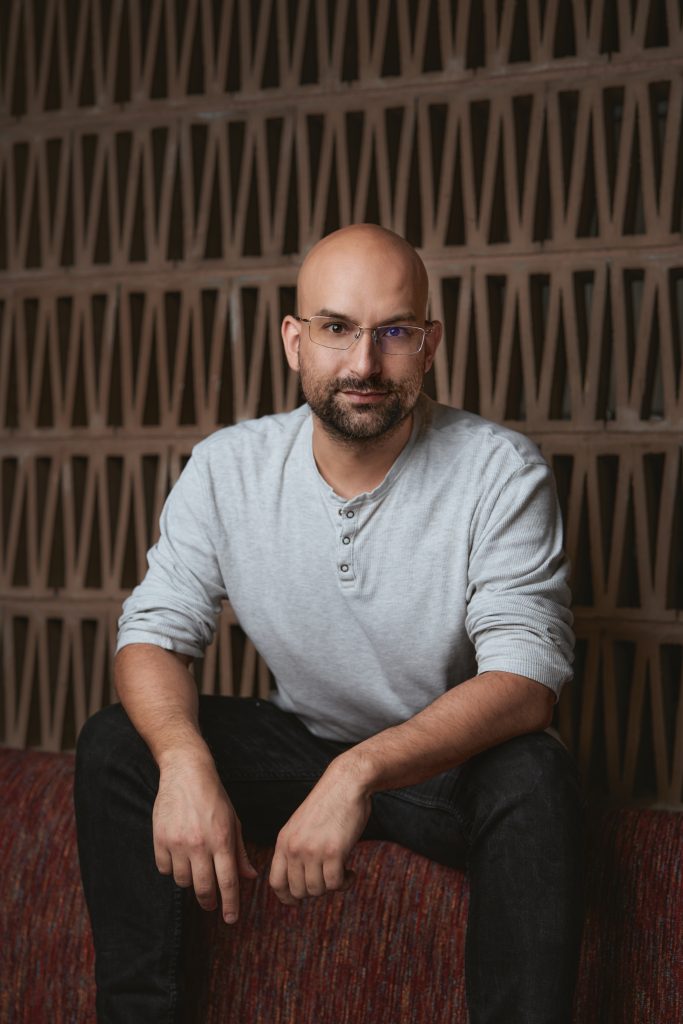
Crossroads Cooking And The Search For Shared Identity In Our Food Traditions
Ivan Brehm
Nouri Singapore
Ivan is a jedi when it comes to food anthropology, speaking on how ingredients travel, that folk thoughts develop because of communities. Some of the greatest cuisine has been born of suffering, enslavement, and colonisation such as the spice and tea trades, and we should remember our collective roots. He also stresses that food should be inclusive rather than exclusive. Essentially, we have more in common than differences.
“Tradition dies and becomes heritage if not carried on.”
— Ivan Brehm
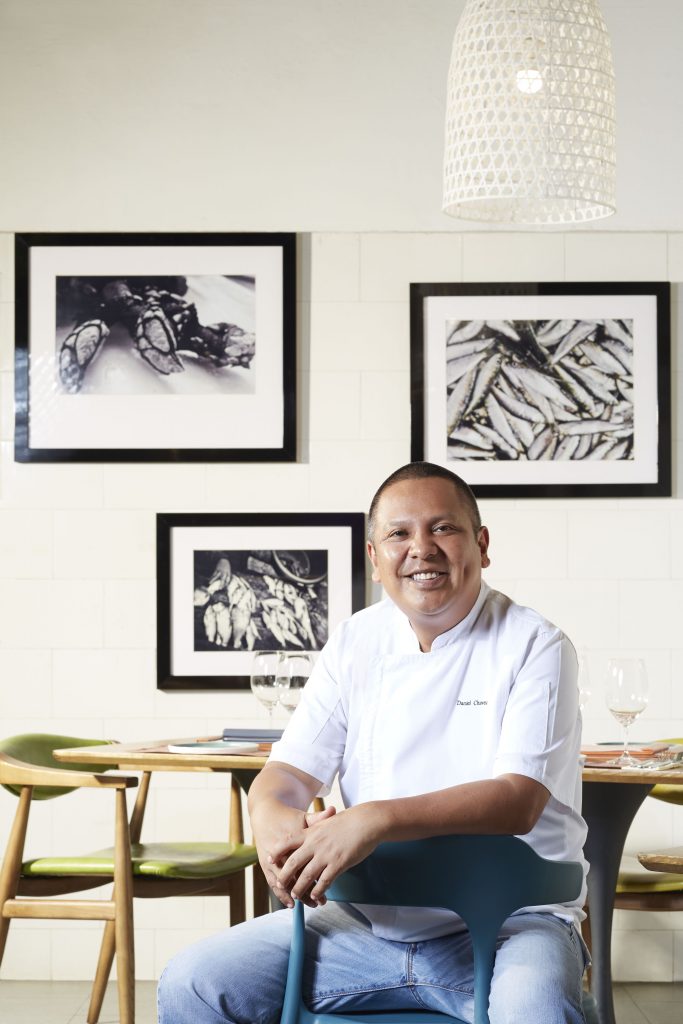
Is Vegetarianism And Veganism A Trend Or Is It Here To Stay?
Daniel Chavez
Canchita Singapore
Daniel talked about the controversy surrounding veganism, about its pros including health reasons, reduction of global warming and overall, more affordable, with the cons being health concerns, supplements and difficulty in maintenance as a lifestyle. He thinks that it’s not a fad and is here to stay, but also touched on fads that didn’t last like molecular gastronomy, bistronomy and cupcakes. We should switch our mindset and stop looking as vegetarians as enemies, instead we should research and promote this way of easting as chefs are also key opinion leaders of society.
“Restaurants should offer more extensive vegetarian options and people should generate meaningful content like recipes.”
— Daniel Chavez

Keeping It Real: Product Traceability And Greenwashing
Daniel Chavez (Canchita Singapore)
Ivan Brehm (Nouri Singapore)
Lilian Chen (Langit Collective)
The three-person panel began with Daniel Chavez saying we should try to get produce from around us, like how canchita does with corn and chillies, but understands we can only do so much, but should try as much.
“You should find the right balance with ingredients and only import when you need to.”
— Daniel Chavez
Ivan Brehm spoke about how sustainability is not just ecological, but for humans. That it should not be just about the product forgetting the people behind it.
“You can’t talk just about products, but the people behind them.
— Ivan Brehm
The third speaker, Lilian Chen was talking about the plight of rice farmers and how unaware many are about where their food come from. She says farmers earn less than 10% of what they sell, and talked about how the high use of pesticide to ensure higher yield has a true cost.
“When they did test on the conventional farmers, there were higher traces of pesticide found in their blood, which caused higher cancer marker cells. That this is the true cost of food. The damage can be generational.”
— Lilian Chen
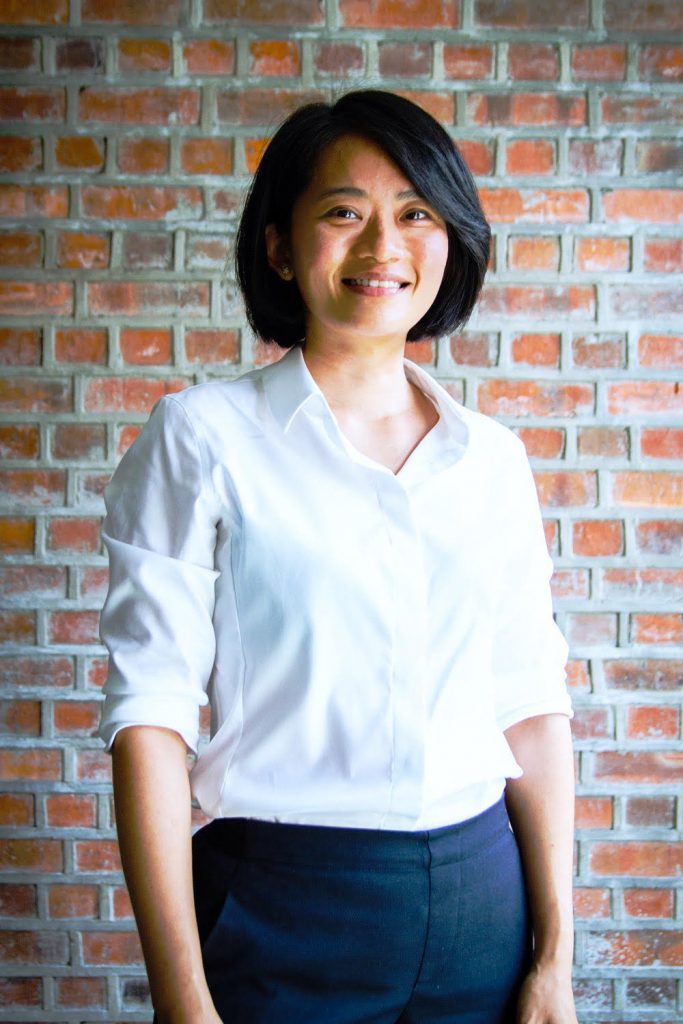
Heirloom Rice And Its Place In Today’s Society
Lilian Chen
Langit Collective
Lilian introduced the heirloom rice of Long Semadoh in Lawas, Sarawak, known as home to Lun Bawang, the “people of the country”. The unique characters of heirloom rice is used by chefs like Mui Kai Kwan and Darren Teoh, and home cooks, in their cooking. She talks about how they are not chemical fertiliser dependant and champions seed sovereignty, the right of a farmer to save, use, exchange and sell his or her own seeds. She also talks about producers having to meet market demands of lower costs, that it should be working with local suppliers, giving voices to farmers and the Malaysian identity for food.
“The questions we consumer need to ask ourselves, are we part of the problem?”
— Lilian Chen
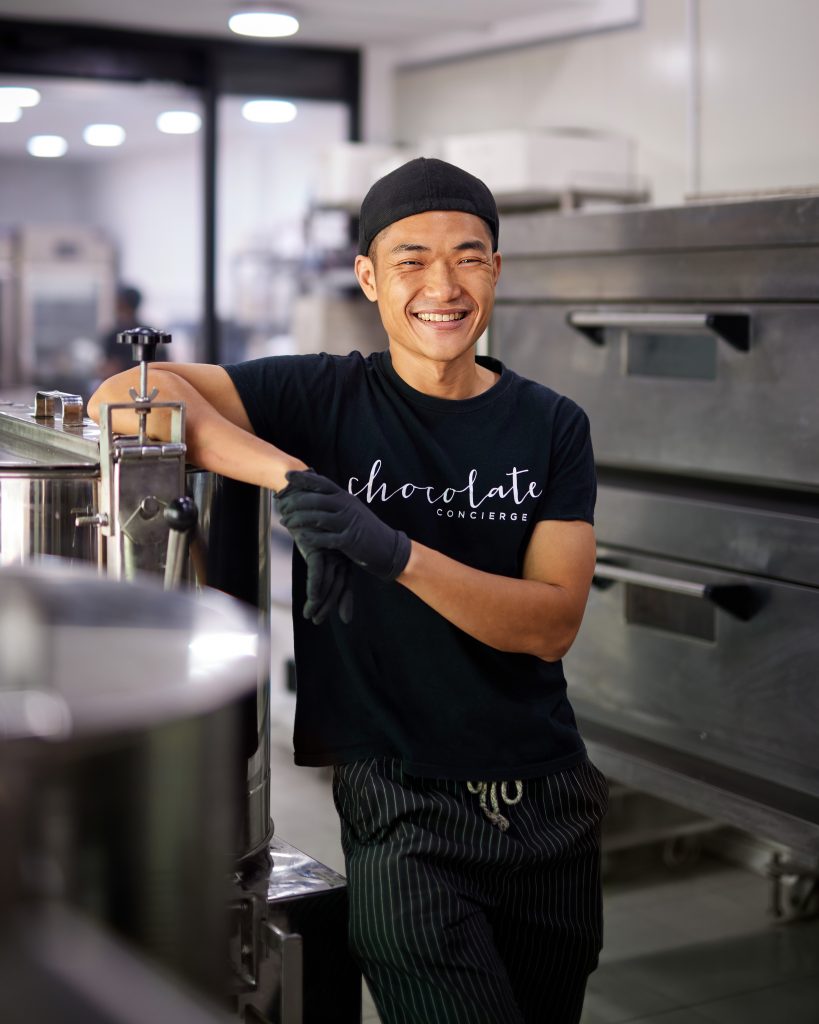
The Challenges Involved With Building A Quality Food Brand In Southeast Asia
Ning Geng Ong
Chocolate Concierge
Ning spoke about his start and learning the chocolate making process, how he worked with chefs to bring these cacao and parts of cacao that can be enjoyed by the diners, with restaurants like Entier and Dewakan.
“Diversity of cacao even extends to the fruit, different pollen produces different seeds of colour even within a pod.”
— Ning Geng Ong

Challenging The Perception That Luxury Must Be Imported: Forging New Paths While Battling Preconceived Ideas
Eelke Plasmeijer and Ray Adriansyah
Locavore Bali
Eelke and Ray talked about how Locavore only uses indigenous Indonesian ingredients, and it took time to convince the locals. People kept coming but there were challenges as guests expected luxury products like wagyu and foie gras where they don’t serve, instead, they have stinky beans, kangkung, and local asparagus. They were also saying how during the pandemic, people tend to go back in time and eat more protein. They struggled with sourcing ingredients at first, going as far to Java and Sumatra, but in time, it was the staff that introduced local ingredients and it became easy. Food sourcing is a lot more effort than say getting a lamb in New Zealand than Java. You’re paying for logistics. And also, all the local good stuff get shipped out too, like prawns to Hong Kong and Singapore. Getting consistent supply is a struggle too. Their advice to young chefs however is to be prepared for the extra effort as it is the right thing to do. It’s about story telling about the country through the food, tourists buy it but not to the locals.
“How to elevate local products to locals? Share it and talk it as much as possible, talk to the ones that cares, some people don’t care so go with the ones you pay extra attention too.”
— Eelke Plasmeijer and Ray Adriansyah
That’s all folks, see you next year.
For all related content, see Kita Food Festival.